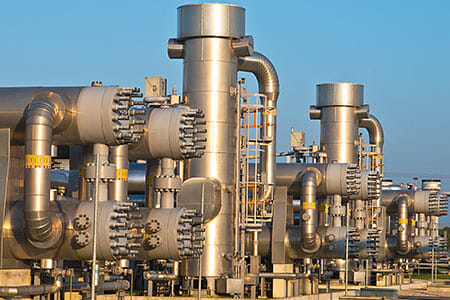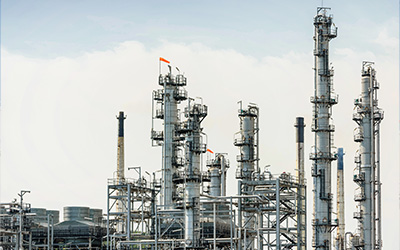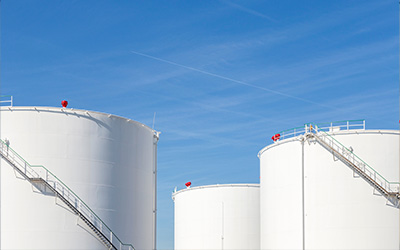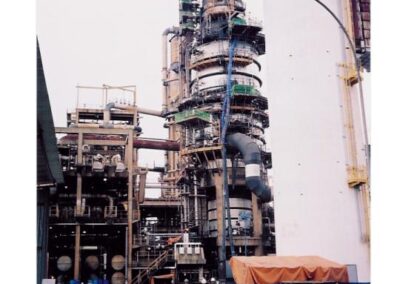INDUSTRY OVERVIEW
Natural Gas Processing
Natural gas processing comes with challenges. With contaminants in equipment causing reduced throughput and compromising product quality, it is important to find a solution for safe, efficient and cost-effective foulant cleaning.
The processing of natural gas includes removing contaminants like water vapor, hydrogen sulfide and carbon dioxide from incoming gas streams.
After removal of these contaminants the natural gas can either be pressurized and sent for further processing via pipelines or it can be separated into its primary fractions. During the compression and/or separation the vapor-state and liquid-state hydrocarbons and NORM’s contained in the natural gas can accumulate over time and foul the processing equipment.

Natural Gas Plant Applications
![]() Filters used to process natural gas can gather iron sulfide deposits, which not only cause the filter to lower its’ performance, but also are also highly flammable.
Filters used to process natural gas can gather iron sulfide deposits, which not only cause the filter to lower its’ performance, but also are also highly flammable.
![]() Glycol dehydration systems can foul with paraffins, iron sulfides, and degraded inhibitors and other chemicals used in pipeline transportation.
Glycol dehydration systems can foul with paraffins, iron sulfides, and degraded inhibitors and other chemicals used in pipeline transportation.
![]() Amine units will foul with iron sulfides and degraded amine which will promote foaming and priming.
Amine units will foul with iron sulfides and degraded amine which will promote foaming and priming.
![]() Lubrication and hydraulic systems will foul from degraded oil treatment chemicals and other product ingress.
Lubrication and hydraulic systems will foul from degraded oil treatment chemicals and other product ingress.
![]() Air coolers (Fin-Fans) will foul on the air-side thereby reducing efficiency.
Air coolers (Fin-Fans) will foul on the air-side thereby reducing efficiency.
![]() Surfaces such as pump slabs, concrete parking lots, cooling tower basins and fill, etc. will foul with several products.
Surfaces such as pump slabs, concrete parking lots, cooling tower basins and fill, etc. will foul with several products.
![]() Barium sulfate can be a problem in all the front-end equipment as it is transported by the pipeline or gathering strings.
Barium sulfate can be a problem in all the front-end equipment as it is transported by the pipeline or gathering strings.
Our Chemicals for Natural Gas Plants
These chemical families below are used together to increase workplace safety, reduce foulants, and increase product quality within the facility.



